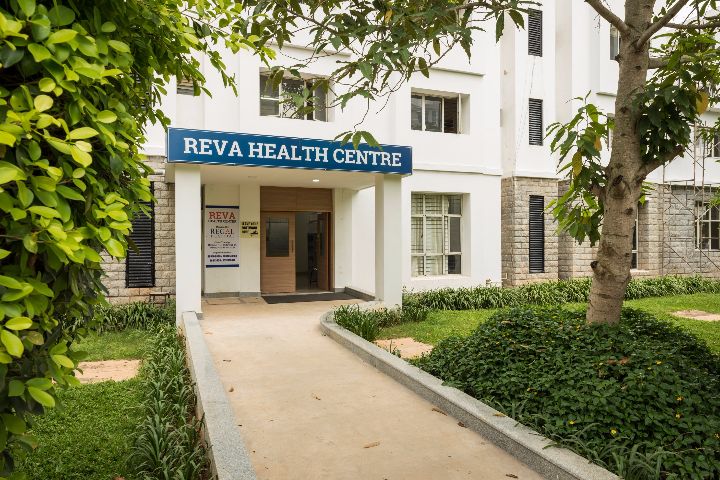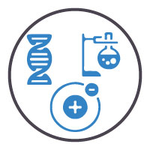
Microbiology Course Details - Fees, Subjects, Syllabus, Duration, Eligibility, Career Scope
Degrees offered: M.Sc., B.Sc., Ph.D, B.Sc.(Hons), M.D.
What is Microbiology
Microbiology is a field that deals with the study of microscopic living organisms such as bacteria, viruses, fungi, protozoa, and algae. In India, more than 420 colleges provide UG and PG-level degrees in microbiology. Many disciplines use this field such as pharmacy, medicine, clinical research, nanotechnology, agriculture, and the dairy industry.
The work or study of microbiologists is interesting as it involves laboratory, computers, and fieldwork at times. Microbiologists acquire sublime knowledge about diseases and hence do not have the common man’s point of view on diseases. Also, microbiologists contribute to saving lives. They research and find ways to thwart diseases. A career as a microbiologist can be in research and non-research fields.
Many universities offer Microbiology courses for both undergraduate and postgraduate degrees. Microbiology courses focus on the diversity and activity of microorganisms in their surroundings. The spread of illness is monitored, and microbiologists develop the perfect solution.
Graduates can be placed in companies like Cipla, Dr Reddy’s, Biocon, Procter and Gamble, Sun Pharmaceutical Industries, Micron Technology, and Aurobindo Pharma. There are various roles offered to these graduates such as Clinical Microbiologist, Research Microbiologist, Biotechnologist, Mycologist, and Parasitologist for an annual package of Rs. 3 LPA to Rs. 13 LPA.
Microbiology- Important Dates
- 28 July 2024- Tentative date of CUET UG Result which will be in the online mode.
- 24th July - 30 July 2024- INI CET Counselling for exercising choices of institute and subject/speciality in the open round is ongoing.
- 08 Aug 2024- NEET PG Admit Card will be provided in online mode.
- 11 Aug 2024- Revised date for NEET PG which will be conducted in online mode.
- 15 Aug 2024-NEET PG Cutoff date for completing the mandatory internship (Eligible for the PG entrance test) in online mode.
- 16 Sep 2024- Start of academic session in online and offline modes.
- 21 Oct 2024- Last date of joining
Highlights- Microbiology
| Particulars | Values |
|---|---|
Branch Name | Microbiology |
Degree | B.Sc, M.Sc, B.Sc.(Hons), B.Voc, MD |
Duration | UG: 4 years PG: 2 years |
Eligibility | UG: 10+2 (PCB) PG: Bachelor’s degree in the same field |
Admission Process | Admission Examination/ Direct Admission |
Entrance Exam | UG: CUET UG PG: GATE, GMAT, CUET PG, IIT JAM |
Course Fees | UG: Rs. 6,000 to Rs. 6.0 lakhs PG: Rs. 5,300 to Rs. 42.0 lakhs |
Job profiles | Clinical Microbiologist, Research Microbiologist Biotechnologist, Quality Control Microbiologist, Mycologist, Parasitologist |
Average Salary | Rs. 3 LPA - Rs. 13 LPA |
Recruiting Companies | Cipla, Dr. Reddy’s, Biocon, Procter and Gamble, Sun Pharmaceutical Industries, Micron Technology, Aurobindo Pharma |
Specialisation or Similar Ones
Professionals can concentrate on particular facets of microorganisms and their uses by pursuing one of the many specialisations or related fields available in microbiology. Among these specialisations are the following:
Medical Microbiology | Industrial Microbiology |
Environmental Microbiology | Pharmaceutical Microbiology |
Veterinary Microbiology | Microbial Ecology |
Top Microbiology Colleges in India
Microbiology is taught in more than 420 Indian colleges affiliated with over 240 universities. Usually, entrance exam results and prior academic standings are taken into consideration for admission. Many of India's best universities offer microbiology as a subject, therefore microbiology tuition fees should also be taken into account.
| Colleges | Fees |
|---|---|
Rs. 1.89 Lakhs | |
- | |
Rs. 66,380 | |
- | |
- | |
Rs. 2.24 Lakhs | |
Rs. 2.50 Lakhs | |
Rs. 29,700 | |
Rs. 2.50 Lakhs | |
Rs. 65,000 |
Note: The fee structure provided above can be for any particular Microbiology course (Diploma/ Degree/PGD).
Top Private Microbiology Colleges in India
In India, many private microbiology colleges provide undergraduate and postgraduate degrees. The top private microbiology colleges in India are listed in the table below. Admission to these institutions is determined by entrance examination results or direct admission based on merit.
| Colleges | Fees |
|---|---|
- | |
Rs. 76,000 | |
Rs. 1.60 Lakhs | |
Rs. 50,700 | |
Rs. 34,800 | |
Rs. 53,000 | |
Shri Jagdishprasad Jhabarmal Tibrewala University, Jhunjhunu | Rs. 68,800 |
Rs. 1.12 Lakhs | |
- | |
Top Government Microbiology Colleges in India
Many government institutes in India offer Microbiology courses at undergraduate and postgraduate levels. Candidates are advised to carefully study the eligibility criteria and course details before applying for admission to the same. Mentioned below are the top government institutes offering the same.
| Colleges | Fees |
|---|---|
- | |
- | |
- | |
- | |
Rs. 6,000 | |
Rs. 79,990 | |
Rs. 49,870 | |
- | |
- | |
Pt Deendayal Upadhyay Memorial Health Sciences and Ayush University of Chhattisgarh, Raipur | - |
Eligibility Criteria (UG & PG) of Microbiology
The eligibility criteria for Microbiology depends on the level of education and the institute. Generally, for an undergraduate degree, the candidates are required to clear their 10+2 in the Science stream with a valid aggregate score. For postgraduate degrees, they must have a Bachelor’s degree in Microbiology or related discipline.
Eligibility Criteria for UG Courses
Candidates interested in pursuing a Microbiology degree at the undergraduate level are required to fulfil certain eligibility requirements before applying to their desired course and institute. Mentioned below are the eligibility criteria for Microbiology at the undergraduate level.
- The candidate must have passed the 12th standard with 50 per cent marks (minimum) in science. Some colleges take admission based on scores obtained in qualifying exams.
- Some colleges take admissions on a national level, institute level, or state-level entrance exam.
- Scholarships are available for students belonging to reserved categories and economically weak sections.
Top Entrance Exams for UG Courses
Candidates who wish to pursue microbiology at an undergraduate level must appear for certain relevant entrance examinations. Merit scores along with entrance test results are considered for granting admission to students.
| Exam Name | Level | Conducting Body | Exam Schedule |
|---|---|---|---|
National | National Testing Agency |
Eligibility Criteria for PG Courses
Candidates should have completed their Bachelor's degree in Microbiology or a related discipline with a valid aggregate score. While the eligibility criteria may vary from institute to institute, the general eligibility requirements for postgraduate courses are as follows.
- A bachelor's degree in a relevant field is required along with a 50 per cent aggregate score in the qualifying examination.
- For reserved category students, there may be some relaxation in the aggregate score.
Top Entrance Exams for PG Courses
Aspiring candidates need to take certain entrance examinations to start with their Microbiology PG journey. Candidates need to clear the cutoff of the following entrance examinations to pursue a PG in Microbiology.
| Exam Name | Level | Conducting Body | Exam Schedule |
|---|---|---|---|
National | GATE Committee | ||
International | GMAC | ||
National | NTA | ||
National | IIT Madras |
Scope of Microbiology in India and Abroad
Microbiology is a massive domain with a wide variety of options. There are various specialisations and it is up to the candidate to choose his/her specialisation. Bacteriology, virology, immunology, medical microbiology, and food and dairy microbiology are popular areas worldwide.
Microbiologists ensure the food we eat is safe and provide solutions to tackle diseases that kill humans. Microbiology is a major contributor to biotechnology. The range of jobs available to microbiologists is as extensive as their work. Many medical and biotech companies invite microbiologists to join them.
Post-doctoral studies abroad have high recognition and yield good pay. Multinational companies, multi-specialty hospitals, food industries, and chemical and cosmetic industries hire microbiologists. Research-based careers suit candidates with a postgraduate and doctoral degree. Another interesting career in microbiology is a marine microbiologist.
Course Fees Microbiology
| Minimum Fees | Maximum Fees | |||
|---|---|---|---|---|
| Private | Government | Private | Government | |
| UG | ||||
| PG | ||||
| DOCTORAL | ||||
| DIPLOMA | ||||
Course Subjects
The Microbiology syllabus differs according to the programme level. The curriculums for the UG and PG programmes in microbiology encompass various topics such as Biophysics and Instrumentation, Principles of Microbiology, and Biomathematics. The syllabus of UG and PG level courses are listed below.
Microbiology Syllabus for UG Courses
The syllabus of Microbiology varies depending on the institute. Organic Mechanisms, Cell Structure and Dynamics, and Principles of Microbiology are the topics covered in the course curriculum. The undergraduate syllabus aims to provide fundamental knowledge of the concepts,
Semester 1 | Semester 2 |
Macromolecular Structure & Analysis | Organic Mechanisms in Biology |
Biophysics & Instrumentation | Principles of Transmission Genetics |
Cell Structure & Dynamics | Principles of Microbiology |
Biomathematics - I | Microbial Growth & Reproduction |
Chemistry (Pass) | Chemistry (Pass) |
Introduction to Computer (Pass) | Introduction to C-Programming & Digital Logic (Pass) |
Semester 3 | Semester 4 |
Microbial Genetics | Molecular Genetics |
Principles of Immunology | Computational Biology & Bioinformatics |
Plant and Animal Tissue Culture Techniques and applications | Biodiversity & Taxonomy |
Microbial diversity & classification | Microbial Biotechnology |
Chemistry (Pass) | Chemistry (Pass) |
Introduction to Data Structure & Computer Organization (Pass) | Introduction to DBMS, Computer Network & Numerical Analysis (Pass) |
Semester 5 | Semester 6 |
DNA Typing, Proteomics & Beyond | Model Organisms in Human Genome Project |
Recombinant DNA Technology | Medical Microbiology |
Environmental Biotechnology | Food & Agricultural Microbiology |
Industrial Microbiology | Microbial Technology – Social, Legal & Ethical issues |
Genetic Engineering Techniques | - |
Applied Microbiology | - |
Microbiology Syllabus for PG Courses
The course aims to provide theoretical knowledge along with hands-on experience. The programme will also include thesis or project work to provide the student with relevant skills to work in research industries or laboratories. In the table below, we have mentioned the Microbiology syllabus for postgraduate degrees.
Semester 1 | Semester 2 |
Biostatistics and Computer Applications | Recent Trends in Virology |
Bioenergetics and Molecular Enzymology | Molecular Immunology |
Bioinstrumentation | Microbial Physiology |
Food and Dairy Microbiology | Microbial Diversity and Extremophiles |
Semester 3 | Semester 4 |
Enzyme Technology | Recombinant DNA Technology |
Bioprocess Engineering and Technology | Fermentation Technology |
Microbial Genetics | Bioinformatics, Microbial Genomics and Proteomics |
Environmental Microbial Technology | Pharmaceutical Microbiology |
Careers in Microbiology
Microbiology has emerged as one of the most promising careers recently. Mysterious diseases are rising, and it’s the job of the microbiologists to derive solutions. There are opportunities for microbiologists to work in numerous sectors. Microbiology is a field in which you can earn as well as develop the country in a good way.
| Job Profiles | Job Description |
|---|---|
| Clinical Microbiologist | Clinical Microbiologists are professionals who specialise in analysing and identification of microorganisms that cause diseases. They conduct laboratory tests to diagnose and treat infectious diseases. |
Biotechnologist | Biotechnologists work in biotechnology companies to develop and produce biotechnological products using microorganisms, such as enzymes, antibiotics, and vaccines. They develop and improve existing products or processes. |
| Mycologist | Mycologists are professionals who study the fungi. They research in detail about the fungi such as their genetics, biochemical nature, and their effect on the environment. They understand the diversity and evolutionary relationship among fungal species. |
Upcoming trends
Due to the increasing demand for microbiology in almost every sector, advanced technologies are evolving through research. These are helping lives day-to-day solving life-threatening diseases and problems in the food industry. Clinical laboratory tests are progressing precisely because of recent inventions. Some new technologies in microbiology are:
- Molecular Methods- Molecular techniques used in microbiology involve the manipulation and analysis of DNA, RNA, protein, and lipids. The benefits of molecular methods are improved sensitivity of detection, specificity of identification, and reduced turnaround time.
- Nucleic Acid Sequencing- Nucleic acid sequencing is the method to determine the sequential arrangement of nucleic acid bases. This allows researchers to identify changes in genes, links with diseases, and identify potential drug targets.
- Digital PCR- Digital Polymerase Chain Reaction methods are used to directly expand and amplify nucleic acid strands like DNA, cDNA, or RNA. Some of its applications are liquid biopsy, rare sequence detection, and gene expression.
Job Profiles and Top Recruiters
Microbiology has a huge demand for distinguished job profiles. Companies seek individuals who can solve their problems with efficient solutions. Several designations are available depending on one's area of interest. Microbiologists can specialise in various fields, including bacteriology, clinical microbiology, mycology, parasitology, and virology.
Top Recruiters:
- Cipla
- Dr. Reddy’s
- Biocon
- Procter and Gamble
- Sun Pharmaceutical Industries
- Micron Technology
- Aurobindo Pharma
Average Salary
Graduates in the field of Microbiology typically earn a substantial salary package, as this is a highly sought-after profession. Mentioned in the table below are some of the popular career options in the Microbiology field and their respective salaries.
| Job Profiles | Average Salary |
|---|---|
Clinical Microbiologist | Rs. 13 LPA |
Research Microbiologist | Rs. 4.3 LPA |
Biotechnologist | Rs. 7.1 LPA |
Quality Control Microbiologist | Rs. 5.6 LPA |
Mycologist | Rs. 5.6 LPA |
Parasitologist | Rs. 4.3 LPA |
Source: Ambition Box
The salary figures mentioned anywhere in these articles are just for reference purposes. Please treat them as such. Actual salaries may vary depending on respective candidates, employer, job location and numerous other factors.
Required Skillset for Microbiology
Students pave the way for new approaches to fight diseases. All programmes in microbiology studies contain laboratory equipment. Internships provide quality experiences and win jobs from potential employers.
Microbiologists specialise in understanding the characteristics and behaviour of microorganisms. Sometimes, they deal with harmful organisms for their research, and it tends to be hazardous. The required skill set to pursue a PG Diploma in Microbiology is:
- Abundant knowledge of science.
- Analytical, interpersonal, mathematical, speaking, and writing proficiency.
- Knowledge about how to use equipment like gas chromatography and electron microscopes.
- Laboratory skills
- Critical thinking
Course Curriculum for Microbiology
Fundamentally, Microbiology courses impart knowledge on basic activities, living, and effects of microorganisms. The organisms include fungi, viruses, prions, prokaryotes, and protists. The immune system and immunology are studied in detail to know how diseases attack the human body.
Theoretical, as well as practical training, is imparted to candidates. This helps them to perform well in-patient care and prevent infectious diseases that bother society. Basic research is introduced to them in postgraduate studies so that they conduct fundamental and applied research.
Also, planning, executing, and teaching medical microbiology is done. Postgraduate programmes are mostly self-directed and focus on clinical and academic work. A thesis is required to complete post-graduation.
Popular Microbiology Entrance Exams in India
Frequently Asked Questions (FAQs)
Question: Is NEET necessary for microbiology?
Question: Are online courses in microbiology worth it?
Answer :
Free online courses are offered with no academic credits or grades. They can be used for gaining knowledge in microbiology. Paid courses are worth it and offer certifications and degrees. There are good facilities online like undergraduate certificates, bachelor’s degrees, and master’s degrees via individual classes.
Question: How to prepare for microbiology entrance exams?
Answer :
The students must have prior knowledge about the syllabus and question paper. Mostly question papers are devised for 2-3 hours consisting of objective-type questions. A clear understanding of these is necessary. Previous year’s question papers can be of great help to prepare.
Question: What is a Microbiology course?
Answer :
Microbiology teaches the basics of reproduction, morphology, and genetics. The course aims to make students learn about molecular methods, infectious diseases, and biochemical characteristics.
Question: What’s the difference between Biochemistry and Microbiology?
Answer :
The similarity between them is that they both focus on living organisms. Biochemistry involves the study of macromolecules that form an organism. At the same time, microbiology studies the organism as a whole.






























